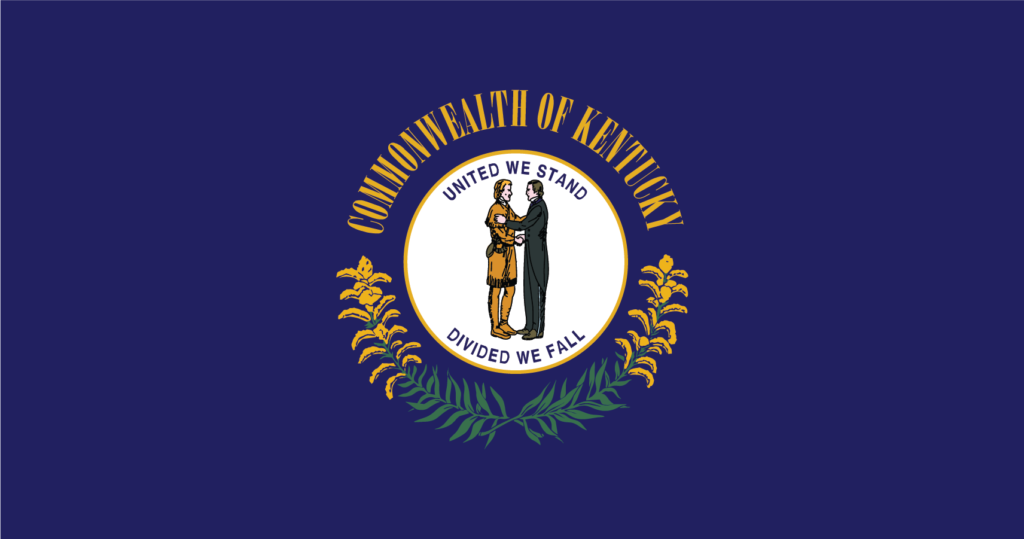
On March 26, Kentucky Gov. Matt Bevin signed HB 323, which will improve occupational licensure portability for veterans, military spouses, and National Guard and Reserve members.1 The bill will require administrative bodies that issue occupational licenses and other regulatory authorizations to endorse and license any applicant that is a member of the National Guard or Reserves, a veteran, or the spouse of a veteran or military member, provided he or she possesses or recently possessed an equivalent license in another state.
The out-of-state license will not be considered for recognition if the license has been expired for more than two years; the license has been revoked for disciplinary reasons or is otherwise not in good standing; or if the applicant demonstrates a substantive deficiency in training, education or experience that could pose a health or safety risk to the public.
While well-intentioned, occupational licensure has been linked to some unfavorable economic effects, such as increased unemployment, higher prices and muted geographic mobility.2,3,4 With over 25 percent of U.S. workers possessing a license, the ubiquity of occupational licensing can exacerbate the difficulty job seekers with military affiliation already have in securing employment.5
According to the U.S. Department of Labor, various military occupations offer training and experience in skills that are applicable to at least 962 disparate civilian occupations.6 Nevertheless, veterans routinely cite obtaining employment as one of the most challenging aspects of transitioning to civilian life.7 Occupational licensing regulations can magnify this difficulty when states fail to recognize out-of-state licenses and disallow applicants to use military experience and training in lieu of civilian credentials to fulfill licensing requirements.
Spouses of military service members are particularly disadvantaged by licensing due to their propensity to work in tightly regulated industries (e.g., education, nursing and child care) and their frequent relocation across state lines.8 Specifically, military spouses are ten times more likely to have moved across state lines in the past year relative to their civilian counterparts.8 Because licensing procedures are largely determined by boards at the state level and can vary considerably, military spouses seeking to maintain licensure throughout geographic relocation can face substantial encumbrances.
The Kentucky bill should help alleviate some of these issues faced by veterans, military members and their spouses. By requiring licensing boards to endorse out-of-state licenses for military-affiliated applicants, the monetary and time costs of licensure are markedly reduced, potentially providing more employment opportunities for veterans, military members and especially their spouses.
Other states have taken similar legislative action to try to remove barriers to work for military-affiliated individuals seeking licensure. Alabama HB 388 (2018), which was signed last year, requires licensing boards to endorse military spouses licensed in another state with equally or more rigorous licensing standards.9 The bill also contains a provision that creates a temporary license for applicants from states with less stringent licensing requirements.
Vermont H 906 (2018) went into effect last year and sought to reduce the amount of redundant retraining members of the military must undergo to be eligible for a license.10 To that end, the bill credits members of the military with civilian experience and training for comparable military credentials.
As states continue to reassess their occupational licensing framework for unsound and overly burdensome provisions, a focus on reducing inefficient barriers and fostering license portability for veterans and military families is an important component that can ensure both efficient labor market utilization and public safety.
This workforce product was funded by a grant awarded by the U.S. Department of Labor’s Employment and Training Administration. The product was created by the recipient and does not necessarily reflect the official position of the U.S. Department of Labor. The Department of Labor makes no guarantees, warranties, or assurances of any kind, express or implied, with respect to such information, including any information on linked sites and including, but not limited to, accuracy of the information or its completeness, timeliness, usefulness, adequacy, continued availability, or ownership. This product is copyrighted by The Council of State Governments.
Sources
- Kentucky General Assembly. HB 323: AN ACT relating to reciprocal occupational licensure for members of the United States military, reserves, National Guard, veterans, and their spouses. 2019. Retrieved from https://apps.legislature.ky.gov/recorddocuments/bill/19RS/hb323/orig_bill.pdf
- Blair, P. Q., & Chung, B. W. (2018). How Much of Barrier to Entry is Occupational Licensing? (No. w25262). National Bureau of Economic Research.
- Kleiner, M. M., Marier, A., Park, K. W., & Wing, C. (2016). Relaxing occupational licensing requirements: Analyzing wages and prices for a medical service. The Journal of Law and Economics, 59(2), 261-291.
- Johnson, J. E., & Kleiner, M. M. (2017). Is Occupational Licensing a Barrier to Interstate Migration? (No. w24107). National Bureau of Economic Research.
- U.S. Bureau of Labor Statistics. (2018). Data on certificates and licensing. Retrieved from https://www.bls.gov/cps/cpsaat49.pdf
- U.S. Department of Labor. 2014. PILOT STUDY Translating Military Skills to Civilian Employment. Retrieved from https://wdr.doleta.gov/research/FullText_Documents/Pilot_Study_Translating_Military_Skills_to_Civilian_Employment_Acc.pdf
- Iraq and Afghanistan Veterans of America (2019). 2019 Member Survey. Retrieved from https://cultureondemand.com/iava-2019/
- U.S. Department of the Treasury and U.S. Department of Defense. 2012. Supporting Our Military Families: Best Practices for Streamlining Occupational Licensing across State Lines. Retrieved from http://archive.defense.gov/home/pdf/Occupational_Licensing_and_Military_Spouses_Report_vFINAL.PDF
- The Alabama Legislature. HB 388: Military Family Jobs Opportunity Act. 2018. Retrieved from http://alisondb.legislature.state.al.us/ALISON/SearchableInstruments/2018RS/PrintFiles/HB388-int.pdf
- Vermont General Assembly. H.906 (Act 119): An act relating to professional licensing for service members and veterans. 2018. Retrieved from https://legislature.vermont.gov/Documents/2018/Docs/ACTS/ACT119/ACT119%20As%20Enacted.pdf

